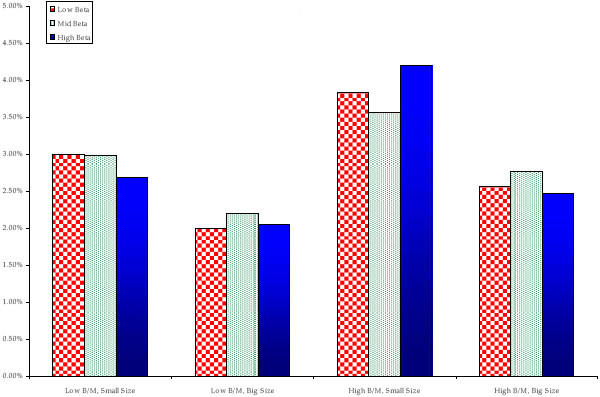Implied volatility, represented by the CBOE Volatility Index (VIX), incorporates the bets of speculators on future stock market behavior. In the April 2006 revision of their paper entitled “Implied Volatility and Future Portfolio Returns”, Prithviraj Banerjee, James Doran and David Peterson examine whether the predictive power of VIX applies to specific portfolio characteristics (value versus growth, small versus large and beta) and whether variations in VIX with respect to its short-term mean are predictive. Using data from June 1986 through June 2005 and future return periods of 22 and 44 trading days, they find that:
- There is a significant positive relationship between current VIX and S&P 500 index returns over the next 22 and 44 trading days, supporting the notion of a negative volatility risk premium.
- The predictive value of VIX is pervasive across value, growth, small and large stock portfolios.
- The relationship between VIX and future returns is stronger for high-beta stocks than for low-beta stocks.
- Volatility deviations from short-term means are important, as well as the simple level of volatility. In other words, VIX tends to revert to a short-term mean.
- Results cannot distinguish between views that volatility is a priced risk factor or a sign of market inefficiency.
The following figure, taken from the paper, shows the geometric mean 44-trading day returns for the different portfolios used in the study. Although these results are not central to the VIX relationship under analysis, they do illustrate the value premium and the size effect.

In summary, both the long-term and short-term behaviors of the VIX appear to have some value as an indicator of future stock returns, especially for high-beta stocks.